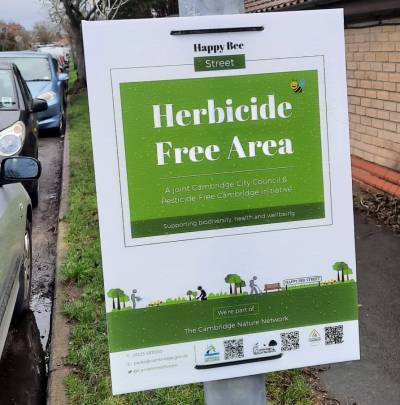A social study of environmental worldviews and practices

Convenors: Dr Julia Shaw (PI), UCL Institute of Archaeology (julia.shaw@ucl.ac.uk) & Professor Andrew Barry, UCL Geography (a.barry@ucl.ac.uk)
Our project examines public attitudes towards urban ‘nature’ including social constructions of ‘weeds’ and ‘pests’ across green spaces and the built environment, and the impact that culturally-specific environmental worldviews have on past:present:future urban landscape and wildlife management practices. It considers intersections between recent community-led environmental activism and changing policies and practices surrounding pest-control, and their wider impacts on public perceptions of wildlife, expectations of urban tidiness and ‘order’, understandings of pesticide toxicity, and community experiences of belonging, agency, and ‘place-making’. It addresses the lack of emphasis on urban pesticides in ‘sustainability’, biodiversity, public health, and disability access rights discourse and policy, with an emphasis on ‘everyday’ chemical exposures that contrasts with the more common focus within critical toxicology on ‘extraordinary’ and one-off industrial disasters.
Using qualitative and quantitative social sciences methods, and informed by theoretical discourse in the medical and environmental humanities, critical toxicology and ecological public health, the study bridges research and activist agendas in biodiversity and climate-change, air pollution, health equality, and environmental justice.
An initial pilot-study, being launched in Cambridge in Spring 2023, draws on community-led environmental campaigns and consequent changes in local landscape-level and estates and facilities management policy, notably the council’s recently introduced Herbicide Reduction Plan and wildflower planting schemes. The pilot-study examines the evolution of these developments in Cambridge and their impact on community behaviours and attitudes surrounding urban nature, pesticide-usage patterns, and experiences of social belonging and place-attachment. Interviews and online questionnaires with stakeholders, residents, businesses, service providers, and schools and colleges, will measure public perceptions of urban nature at the same time as changes in policy are being implemented.
Research questions
- How has the Pesticide-Free Towns movement impacted on and attitudes towards and usage of pesticides by residents and service providers?
- To what extent has an ecological public health model been understood and accepted by affected populations and stakeholders?
- What are the kinds of mindsets and worldviews that impede progress in environmental attitudes and behaviours (and associated legislative shifts in chemical use and waste)?
- How might a collaborative approach to the elimination of pesticide-use be developed?
- What are the key motivating factors for public engagement with the pesticide-free movement (human health versus disability rights versus biodiversity)?
Other key research areas
- A UN (2019) synthesis report highlights social and cultural behaviours as issues that must be addressed in order to meet the 2030 SDGs related to chemicals and waste. However, neither community action, nor belief systems - religious, medical or cultural - as shapers of environmental attitudes and behaviours, figure prominently in the UN documentation, despite a growing discourse in the religio-cultural correlates of climate-change. Our study reflects the need for scholarly consideration of the significance of localised environmental attitudes and policies for encouraging broader changes that better respect the planetary boundaries enshrined in the UN SDGs.
- Recent research and campaigns surrounding urban pesticides tend to prioritise glyphosate-based herbicides, to the exclusion of non-phytosanitary insecticides used in and around the built environment. Our pilot-study will include documentation of broader pesticide-use patterns across these varied contexts, data for which are currently lacking in the UK.
- Pesticides pose disproportionate risks to vulnerable groups, including those with existing chronic illnesses and allergies. Our study takes an intersectional approach to pesticide-exposure as not only a biodiversity and public health matter, but also as an environmental justice, health equality and disability-access rights issue, seeking to shape research and policy-making in all these areas.
- The relationship between environmental conservation and community engagement with historically and culturally significant places and landscapes is a key theme in the paleo-environmental humanities, as is the challenge of identifying community-level agency and dissent within top-down narratives of governmentality and in historical and archaeological landscape studies. Our study, by examining how contemporary, micro-level environmental activism impacts on place-making, social belonging, and sustainability, contributes to both sets of discourse.
 Close
Close

